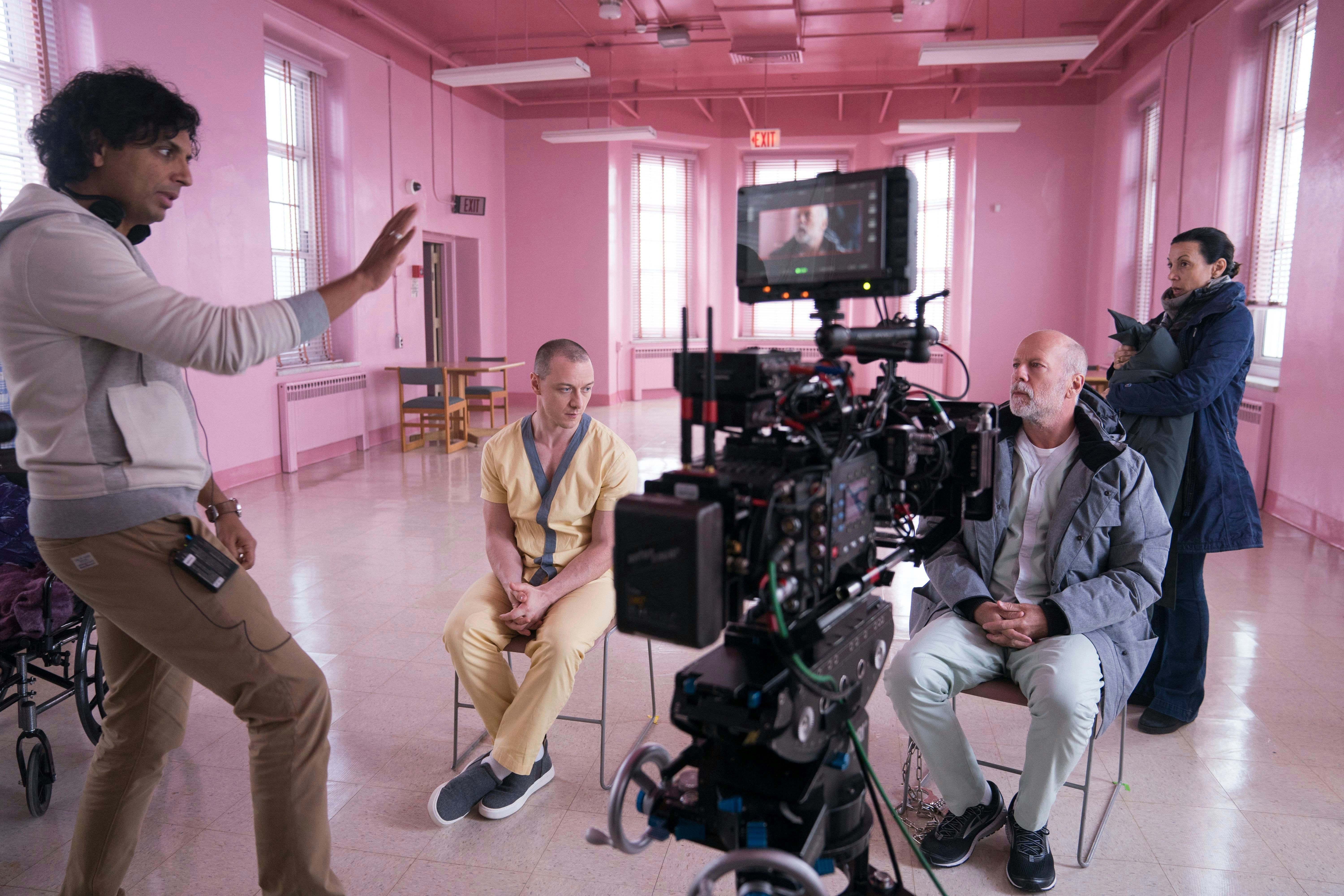
Moon Knight is unlike anything else in the Marvel Cinematic Universe, but it’s not the first superhero story to try something a little more cerebral. In 2017, M. Night Shyamalan unleashed Split, about a superpowered character with dissociative identity disorder (DID), just like Marc Spector.
In an interview with Inverse, Moon Knight head writer Jeremy Slater says the production team of the Marvel series, now streaming on Disney+, closely studied Shyamalan’s popular thriller. But what they wanted to learn was how to not emulate the movie’s portrayal of the mental illness, a real condition that approximately two percent of the population have.
“I love a lot of [Shyamalan’s] films,” Jeremy Slater tells Inverse. “Split was one we actually talked about because that is a film controversial within the DID community. It’s a film that directly plays on the ‘evil alt’ trope, and it’s a movie a lot of people in the DID community find hurtful.”
Split opened in 2017 and gained buzz as both an effective psychological horror and a surprise sequel to Shyamalan’s original superhero thriller Unbreakable, released 17 years earlier. But the movie also generated a lot of criticism, both from mental health experts and those diagnosed with DID, who say the movie further stigmatized the condition.

Split tells the story of a serial killer and kidnapper, Kevin Crumb (James McAvoy), who developed two dozen personalities as a coping mechanism for his childhood trauma. The most terrifying one is an animal-like cannibal known as “The Beast.” At the end of the film, Crumb’s story makes headlines, with the press dubbing him “The Horde.”
Though Split was lauded as a movie, it was slammed for its nightmarish portrayal of DID, and for perpetuating stereotypes that those with DID are violent. Studies show that people with DID are more likely to hurt themselves than others.
In a CNN story published in January 2017 that chronicled the DID community’s overwhelmingly negative response to Split, Dr. Garrett Marie Deckel, a specialist at Mount Sinai’s School of Medicine, received a troubling email from a patient.
“There’s a new movie out about a person with DID,” they wrote, “Do I ever scare you?”

Moon Knight, a Marvel superhero with DID, had his own show teased by Marvel’s Kevin Feige in 2019. Feige described the show as an action-adventure series in which mercenary Marc Spector “may or may not be infused with powers ... or he might just be crazy.”
“Crazy” is not a word to be used lightly in conversations about mental health, which is why Moon Knight seemed to change its tune regarding Marc Spector’s illness. Given how Split drew ire when it released, Moon Knight tried a different approach.
“We sort of used [Split] more as a cautionary tale than anything else,” Slater says.
Compared to Split, Moon Knight has created less controversy. The response has been more varied, ranging from a generally positive reception to criticism of its shortcomings in how it portrays life with DID.
No work will ever be perfect, especially as a representation for mental illness. But a willingness to learn from the past suggests the possibility for a more thoughtful future.
“It was something we talked about a lot,” Slater says, “let’s look at what they did, and let’s make sure that, creatively, anything we’re saying or putting out there in the universe isn’t going to be harmful, especially knowing the platform we had and how many eyes would be on this.”
Moon Knight is streaming now on Disney+.







